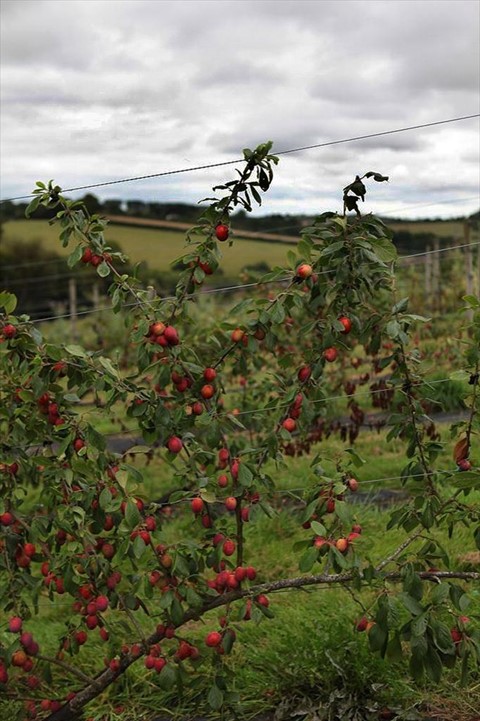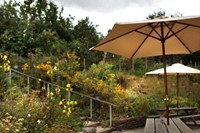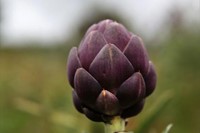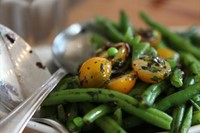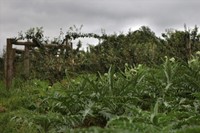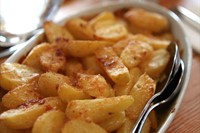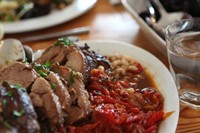Riverford organic is best known as a pioneer of the vegetable box delivery scheme in the UK, its own version of which it has been running since 1993. It is certainly one of the most successful organic food delivery companies...
Riverford Organic is best known as a pioneer of the vegetable box delivery scheme in the UK, its own version of which it has been running since 1993. It is certainly one of the most successful organic food delivery companies, and unlike other popular box schemes that deliver but don’t grow the vegetables themselves (the larger of whom offer the same untraceable organic veg as the supermarkets), Riverford is a working farm with its own restaurant as well.
Situated near Totnes, Devon, the farm has been in Riverford founder Guy Watson’s family since 1951. After studying agriculture at university, Watson decided he was sick of milking cows and left the field to work as a management consultant in London and New York, only to find himself back at the farm after a few years when he realised he “didn’t have a choice but to be a farmer. I couldn’t work for anyone else and I hated being in an office all day.” Also drawn to the prospect of running his own business – he is a self-confessed born entrepreneur, “which is about making worthwhile things happen, not money," he says – Watson was keenly aware that to keep to his ethical standards while also staying afloat as a farmer, he would have to do something different.
“At the time there were no schemes like this in existence,” he tells us. “I started off just delivering to local shops, I must have been completely insane… but my timing was good.” Nearly thirty years on and there are several organic delivery companies vying for an increasingly interested public’s attention, while Riverford has developed a network of associate farms across the UK, Spain and France, which all work to common high standards.
For the past six years on the farm itself, chef Jane Baxter has been running the Field Kitchen, a restaurant smack in the middle of it all, whose menus are built around the produce that's growing a stone’s throw away. An autodidact and enthusiastic traveller, before settling in Devon Baxter worked at the River Café and for Peter Gordon in London, and spent nearly a decade in Samoa and the South Pacific.
When we meet with Baxter she has just returned from a food festival in Puglia, and that Italian region’s cuisine is fresh in her imagination. At a small restaurant in Northern Puglia she learned a new way to use courgettes tops, something that is perfect for the Field Kitchen, which relies on making the most of what’s in season. Baxter and her team must be constantly creative – thinking on their feet about how spicing and new techniques can bring out the best of the crops again and again. “My sous chef, who worked at Raymond Blanc’s Le Manoir, is far superior technically to me,” she modestly says. “But between my passion and his technical expertise, we get things to a point where we’re both happy. And we’re always trying out new things.”
The Field Kitchen is a tall A-frame structure comprised of a large open dining room and kitchen. Nestled away from the road, the décor is simple and cosy, with large windows that keep you connected to the acres of fruit and vegetables growing nearby (most prominent when we visited were the rows and rows of giant green and purple artichokes). Serving one tasting menu a day, diners share not only space at the long communal tables, but also large serving platters of roasted meat and fresh vegetables that get passed around. The focus is on creating a total dining experience where all the dishes work together as a whole – which is especially important because you end up with a bit of everything on your plate. For us this means lamb with white beans and pepperonata, grilled leeks with fennel and watercress, green beans with cherry tomatoes, and roasted beetroot – all of which is fresh, honest and delicately spiced.
While the Field Kitchen has become a destination restaurant, many of Baxter’s most popular dishes, including our favourite, lamb cooked in milk with fennel, can also be found in her and Watson’s two cookbooks, the latest of which, Everyday & Sunday: Recipes from Riverford Farm, was published a couple of months back. The books are also a way for Watson to focus on one of his main goals: to get people cooking. “The biggest restriction is people's desire to cook,” he explains, “and having the skills to make it easy. It's what is lacking. So we put a lot of effort into this.”
“I've always said the business is here to be useful,” he continues. “And getting people to cook is part of this. At Riverford, everything we do comes down to good business, good food and good farming. That's our philosophy.”
Neil and Ananda visited the Field Kitchen on Saturday August 13 at 1pm. They each order a Riverford box weekly.
Text by Ananda Pellerin
Ananda Pellerin is a London-based writer and Neil Wissink is a visual artist also based in London. More from The Hunger here, and contact The Hunger here.
